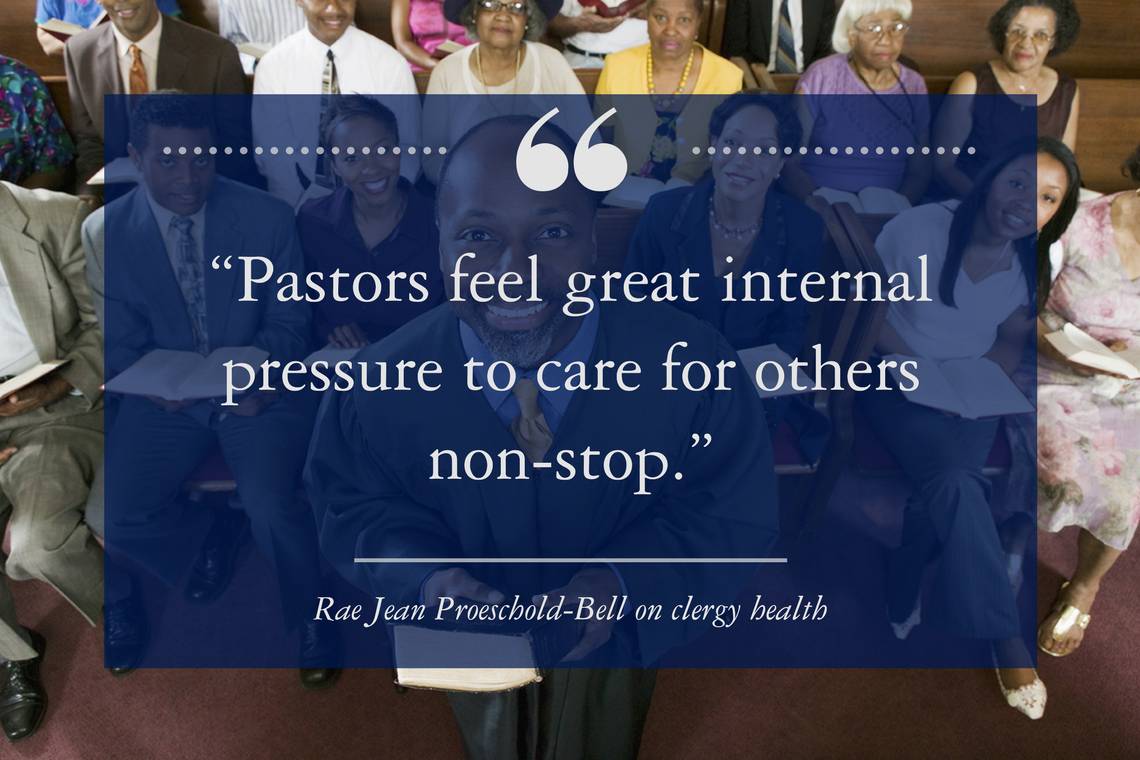
DURHAM, N.C. -- An intervention program for more than 1,100 United Methodist clergy in North Carolina led to improvements in weight, cholesterol and blood pressure that were sustained over 24 months.
The findings will be published by Duke University researchers in the June 19 issue of the American Journal of Preventive Medicine. They represent the culmination of the Spirited Life intervention portion of the 10-year, $17 million clergy health project funded by The Duke Endowment.
According to researchers, clergy tend to forgo self-care.
“Pastors feel great internal pressure to care for others non-stop,” said lead researcher Rae Jean Proeschold-Bell, an associate research professor in the Duke Global Health Institute. “The sacred nature of their work combined with the many roles they play makes pastors reluctant to take breaks, especially if there is no co-pastor in their church to provide back-up.”
This stress and the availability of food at so many church meetings have created a situation in which 78 percent of pastors are overweight or obese, which then makes them vulnerable to chronic diseases. The Duke team’s research has documented above-average rates of depression, obesity and several chronic diseases for clergy.
Unlike in most studies, participants were recruited based on being a clergy member, as opposed to having a particular health diagnosis. Engagement in the intervention was high, possibly because pastors saw their peers were similarly involved. They also were able to set their own health goals -- with health defined as mind, body and spirit -- instead of being required to focus on a single diagnosis or a specific behavior.
This study also was unique in its length, said co-author Gary Bennett, the Bishop-MacDermott Family Professor of Psychology & Neuroscience, Global Health and Medicine at Duke.
“Few interventions last two years,” said Bennett. “The long duration enabled participants to practice new health behaviors, slip up, and then re-engage in healthy habits with support such as health coaching still in place.”
Participating clergy members began the study with a three-day workshop that challenged the idea that self-care is selfish. It reframed health in theologically relevant terms, thereby making health behaviors important to this group.
Pastors underwent health screenings at the beginning of the study and at the 12-, 18- and 24-month marks. Many checked in with a health coach once a month. Pastors could view online weight-loss videos that focused on portion size and sugar reduction. To maintain engagement, overnight workshops were held in the middle and end of the study, and small grants of $500 toward health goals were also offered at the midpoint.
“Spirited Life encouraged pastors to develop their own holistic health goals and offered support through a variety of resources as they worked toward them,” said Carl Weisner, senior director of the Duke Clergy Health Initiative.
Along with depression and stress, the study measured metabolic syndrome (a cluster of conditions -- including abnormal cholesterol levels, high blood pressure, large waist circumference and diabetes indicators -- that can lead to heart disease, stroke and diabetes). Results showed a marked benefit on metabolic syndrome, but no significant effect on depression or stress measures.
“This study indicates that you can offer a less-intense, longer term intervention and still achieve clinically meaningful results,” said Proeschold-Bell. “We believe these findings have broad applications for other population groups, including regular church goers and non-clergy caregivers.”
This study was supported with funding from The Duke Endowment.
###
CITATION: “A 2-Year Holistic Health and Stress Intervention: Results of an RCT in Clergy.” Proeschold-Bell RJ, Turner EL, Bennett GG, et al. American Journal of Preventive Medicine. In press. Online June 19, 2017.